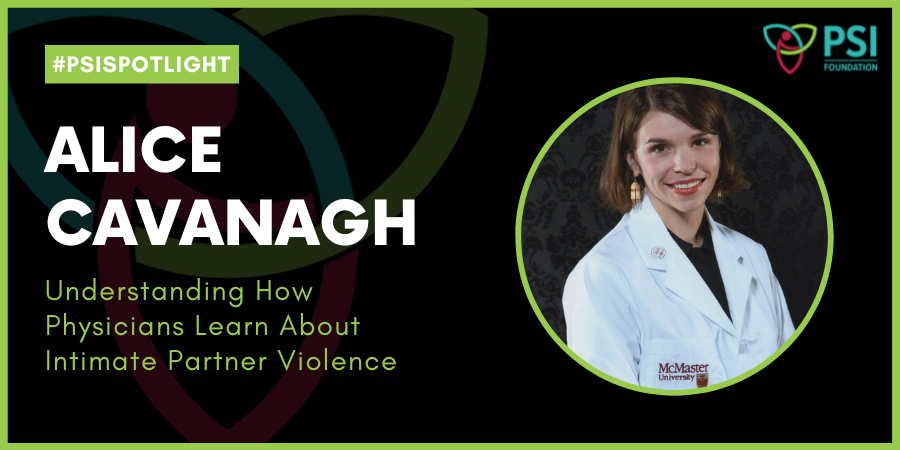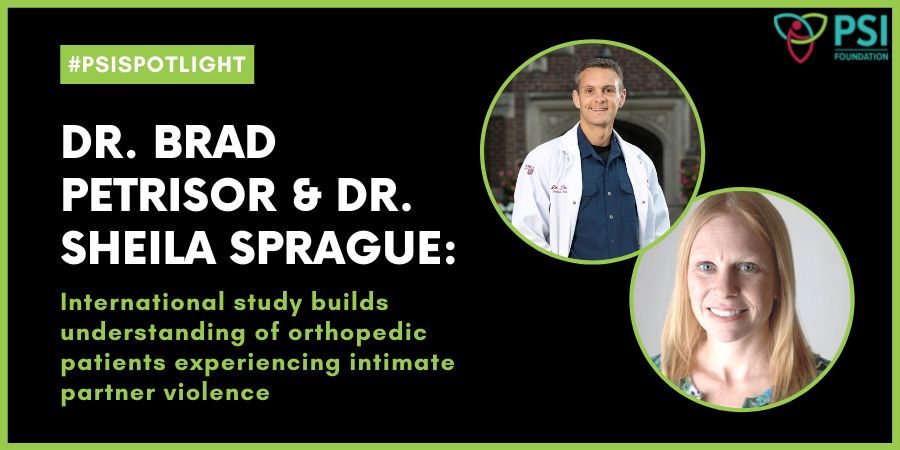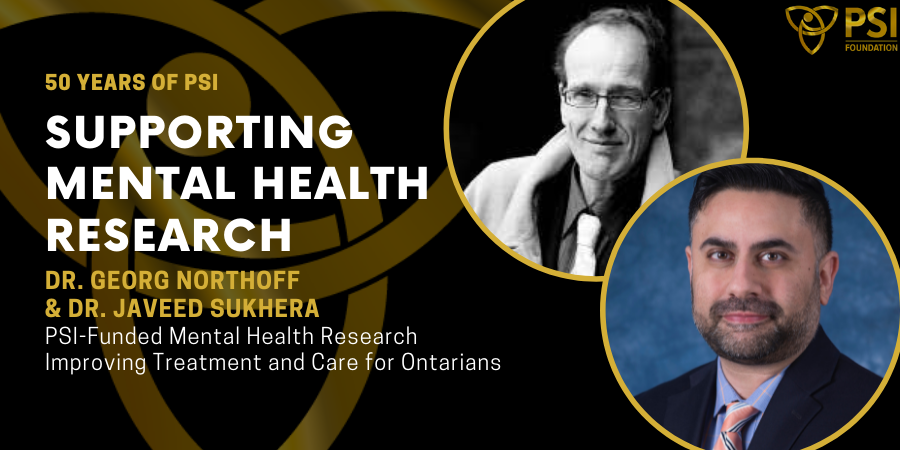As a volunteer at a sexual assault crisis centre before starting medical school, Alice Cavanagh would occasionally accompany people who had experienced sexual violence to access emergency health care. While health care professionals’ roles include the important and difficult tasks of collecting samples and evidence, their interactions with the survivor were very different from hers as a volunteer trained primarily to listen and be supportive.
“I became interested in what physicians are actually learning in the course of their professional training about intimate partner violence and sexual violence, and how that shapes their practice,” says Cavanagh. “There is research that quantifies how much education Canadian medical students get on intimate partner violence, but I was really interested in looking at the impact of that education. How are physicians experiencing that training and what are they taking from it?”
When Cavanagh started the MD/PhD program at McMaster University a short time later, she was able to examine these questions, receiving a PSI Research Trainee Award to support her research. With supervision from Dr. Meredith Vanstone and mentorship from Dr. Harriet MacMillan, she led research on how physicians learn about intimate partner violence (IPV) and how that affects the support they provide to patients, and recently defended her dissertation.
In the first part of the study, Cavanagh examined policy and training materials for physicians related to IPV. She then collaborated with the RISE project, a study funded by the Public Health Agency of Canada examining the family violence learning needs and preferences of Canadian social workers and physicians, interviewing physicians and residents across Canada from five medical specialties (emergency medicine, family medicine, obstetrics and gynecology, psychiatry and pediatrics) about their IPV education and the support they provide to patients. She also interviewed health and social service providers outside of medicine about their perceptions of the IPV training that physicians receive.
Physicians often feel unprepared to support people experiencing violence
Cavanagh’s analysis of physician’s training materials found that IPV has become increasingly medicalized, where it is often viewed solely as a health issue, instead of a structural issue with many facets, including poverty, racism, ablism and other forms of oppression. She also found that physicians are taught to identify patients experiencing IPV, provide them with support, and direct them to resources.
At the same time, physicians and residents revealed during the interviews that, while they understood IPV is important to their patients’ health, they largely felt unprepared to support their patients. However, they also spoke about how much they valued experiential learning, which Cavanagh says may offer opportunities to collaborate with IPV experts in other fields to learn directly from patients and other IPV experts.
Interviews with experts outside of medicine confirmed that physicians need to understand IPV and be prepared to support their patients. But they also highlighted that physicians need to be more aware of power dynamics in intimate partner violence, both in terms of the power dynamics between the person who is enacting violence and the person experiencing violence, but also the power that physicians hold in society to make a difference for individual patients and in dismantling the structures that uphold violence.
“It’s not just about understanding, it’s also about engaging with power to move from knowledge to action,” says Cavanagh. “This is a problem that can’t only be addressed by the health care system. By creating opportunities for health care providers to learn about IPV as an issue that is complex and connected to lots of different facets of people’s lives, my hope is health care providers will have opportunities to engage with the type of collective action that is critical to address complex, structural issues like IPV.”
PSI support was instrumental to kickstarting research career
With her dissertation complete and one more year of medical school remaining, Cavanagh is looking forward to continuing research that will improve health policy.
“My goal for my career is to be able to use my clinical work to look at questions about policy and health and to be able to use my research skill set to answer and think through those questions,” she says. “I really believe in the value of clinician-scientists, including those who work outside traditional bench-to-bedside research, and funding from PSI was really instrumental to me in being able to do my work and kickstart my career.”
Cavanagh says the PSI Research Trainee Award provided important financial support during her studies, and PSI meetings gave her important opportunities to connect and collaborate with other researchers.
“In very practical ways, being a part of the community has been really helpful to me in finding and developing new opportunities to grow, which is so important at this stage of my career,” she says.
Cavanagh hopes that the results from her research will help to inform medical education about IPV, particularly in developing opportunities to collaborate with experts from other fields and fostering physicians’ connections with community resources and services to support people experiencing IPV. With more than one quarter of women worldwide having experienced violence, she emphasizes that this issue affects people from all communities, including physicians.
“Violence and structural oppression are pervasive and touch every corner of our lives,” she says. “In health care, if we can have more sensitive conversations about these issues that acknowledge that this isn’t an issue that only affects ‘other’ people, that it affects everyone, I think that we can come toward creating safer places for both patients and providers.”



